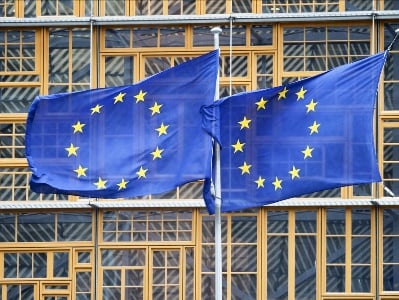The European Union (EU) has officially implemented its fourteenth package of sanctions against Russia, the EU Council announced in a press release on Monday.
This comprehensive suite of measures targets critical sectors of the Russian economy, including energy, finance, and trade. By enhancing the robustness of sanction enforcement mechanisms, the EU aims to prevent circumvention of its restrictive measures. Key provisions include a prohibition on reloading services for Russian liquefied natural gas (LNG) within EU territory for transshipment to third countries. Moreover, the sanctions ban new investments aimed at finalizing LNG projects that are currently under construction. Financial restrictions have been tightened, exemplified by the outlawing of the "System for Transfer of Financial Messages" (SPFS), further isolating Russia from the global financial system.
Additionally, maritime measures entail a ban on port access and service provision to vessels contributing to Russia’s efforts in the Ukraine conflict. The aviation sector is also impacted with an expansion of the EU flight ban. Enhanced import-export controls and additional restrictions further solidify the EU’s stance.
In a statement from the EU Council, it was highlighted: "Today’s package includes restrictive measures on an additional 116 individuals and entities responsible for actions undermining or threatening the territorial integrity, sovereignty, and independence of Ukraine."
As part of this new sanction regime, 61 organizations have been accused of supporting the Russian military industry. Correspondingly, stringent export restrictions on dual-use goods and technologies have been applied to companies located in Turkey, China, and the UAE, reflecting the EU’s commitment to curbing external support for Russian military operations.
In a significant cultural preservation effort, the EU has also banned the purchase, import, transfer, or export of Ukrainian cultural property to Russia when there are reasonable grounds to suspect that these items were unlawfully removed from Ukraine. This measure underscores the EU’s dedication to safeguarding Ukraine’s cultural heritage amid the ongoing conflict.
Source: EU Council Press Release
